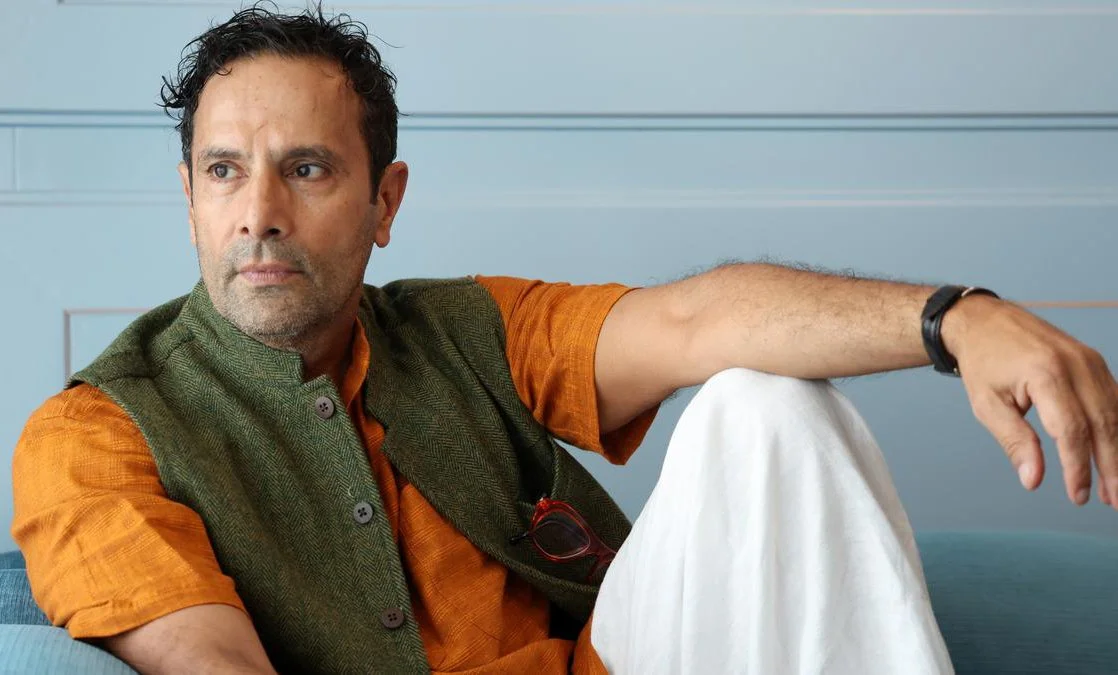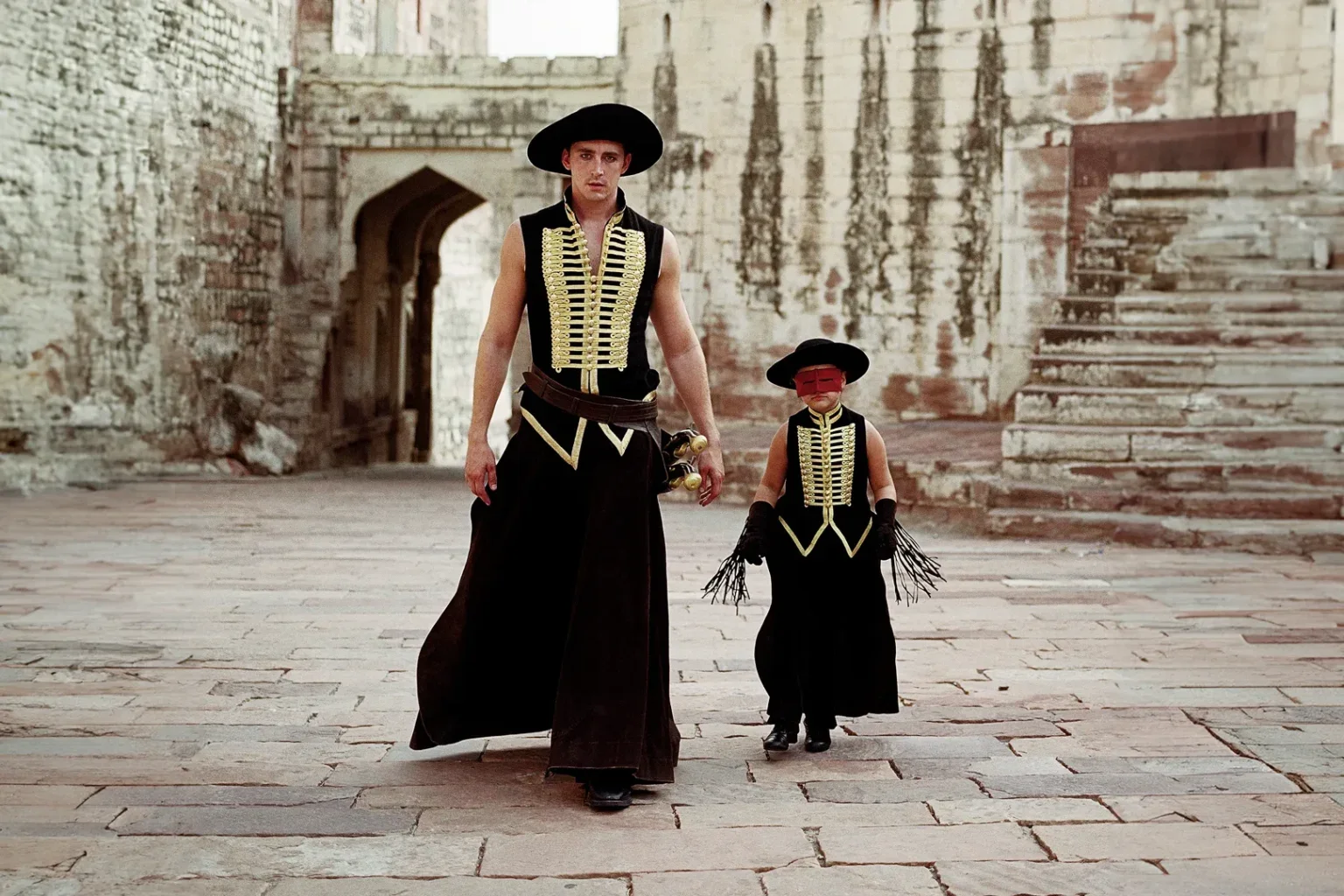Renowned Director Tarsem Singh’s Iconic ‘The Fall’ Makes a Return
While he’s eager to shoot another big flick, count him out for Marvel or DC.
Photo: Getty Images.
It’s hard to describe Tarsem Singh. The 63-year-old Indian director is prolific; you know him for epic films like 2000’s The Cell, 2006’s The Fall or last year’s Dear Jassi. You also know him for creating some of the most iconic moments in popular culture, including directing R.E.M.’s “Losing My Religion” music video and, most importantly, creating the 2004 Coca-Cola goes Gladiator ad starring Britney Spears, Beyoncé, Pink and Enrique Iglesias.
Speaking of The Fall, the film has been considered in more recent years to be one of the greatest arthouse pieces of all time. It centres a bedridden patient in a hospital as he tells a young girl a fantastical, vibrant tale of heroes and villains. With a stunning and even more incandescent 4K restoration now available to stream on Mubi, it’s having yet another moment.
Still from Singh’s 2006 film, The Fall.
Needless to say, Singh knows his audience, and has a fun, edgy perspective few directors do. That also might be why, even in conversation, he feels one of a kind. Singh is proudly irreverent, funny and fast-talking, with no f—ks given. In a short but wide-ranging interview, he sat down with RepresentASIAN Project and discussed everything from The Fall’s dedicated fanbase to filming in India to his distaste for superhero movies—unsurprisingly.
Why do you think The Fall took time to build the following it has?
It is polarizing, it just needed to find its audience. I just wish it didn’t take this long or I would have done financially well! But it didn’t disappear into the ether. So, I look at the positives and they’re great. And I’m not living on the street, I’ve been working for the last 30 years, so I’m happy.
Going back to it after 20 years, when you look back on it now, why does it feel meaningful?
I was more nuts then than I am now. I would say I was possessed. There was no way anybody could convince me to do anything any other way, only from other people’s reactions could I tell maybe I was biting off more than I was chewing. I remember everybody realizing how many countries we were filming in [and the reaction was] nobody’s done this before. I’d been location scouting for 19 years. I remember the first time I went through every location, I turned around and I caught the assistant director looking at my executive producer, and he’s got this expression of, like, “Is he serious?” Yeah, maybe I was being nuts, but that’s what it took. Whenever someone says they can’t do something because that is not how things are done, I say, “That’s alright, how things are done is how you make a studio film, and this is not that.” This was a self-funded idiot’s movie. I said, “Come on this little caravan with me or don’t.” I had to hire a new cameraman who had never shot before. For me, nothing was going to stop the film from happening, apart from me dying.
So, I’m assuming, then, it is true you went bankrupt making it?
I will just say look at the production value. Nobody has that much money to throw away, and I did, and I threw it all away. I just did not sell my house.
“For me, nothing was going to stop [The Fall] from happening, apart from me dying.”
Will you make an epic at that level again?
I would like to, it’s just that I’m working all the time, mostly in advertising, which most people in film think is whoring around, but I love it. In between, when a film comes together, I love to make it. But would that kind of budget exist for me again? I don’t know. The stuff that tends to [get that budget] is not relatable to me, like Marvel or DC. I can’t fake that orgasm; I don’t know how to make that stuff. My cameraman always used to say that if you’re going to wrestle with a pig in mud, you have to remember that the pig actually enjoys it. So, if you’re competing with people who love doing that, there’s no way you can fake it and do as good a job. If you come to me for me, I know how to do what I like in my sleep. And I’m not so strapped for money to say that I would do it for money. I would like to get more of my DNA out there, so I make as many movies as I can that reflect me. They just might not be what [everyone] likes.
The making of The Fall has roots to your childhood in India. Your last film, Dear Jassi, went back there. What’s different about filming an Indian story versus a more global one?
Filming in India used to be really hard for me 20 years ago. When I used to go out there, my cameraman would be Irish, I’d have a white crew, and everybody would come to me and say, “Where should I park the trucks? Where should I put the food?” I’d say, “I’m the director. Talk to that person.” They’d go, “But they’re white.” And I’d say, “Yeah, but they work for me!” They never understood that, they didn’t feel comfortable. Now, when I did Dear Jassi, it was such a phenomenal experience, because it was more diverse, everybody knows what’s done and they let me do what I want.
“The stuff that tends to [get that budget] is not relatable to me, like Marvel or DC. I can’t fake that orgasm; I don’t know how to make that stuff.”
I hope we get to see you go to India again for another film.
Well, me too! I hope it doesn’t end up like The Fall, because nobody wanted that and it took forever to put out.
The Fall does have a cult following now.
By definition, “cult” means a small group of people that will see the thing again and again. The thing that makes commercially more sense, and which the studio likes, is that a lot of people see it and then tell you it’s shit, it’s okay, it’s great, or it’s average, whatever, but a lot of people see it. “Cult” means an audience that will die for it, but that’s okay, I’ll take that any day.
After 2016’s Emerald City series, would you ever do TV again?
Yes, I did do it and I loved it. The industry always tells you, you make money if you just do the pilot. [But I’ve] got more money than is good for me. I need to do a full season, but it’s such a righteous medium that you don’t always get to. So, whenever somebody comes to me for a series, I say if I only get to do the pilot, it’s too small a thing for me. It feels like your wife gets dressed up, you go out, and then somebody else comes in and f–ks her, and I’m not into that; I want it all. It’s very rare to get that and…I realized how little control I had in the end once it’s done, too. I try to nurture the projects where I can have more control.
Singh on the set of Emerald City. Photo via Los Angeles Times.
What are your current inspirations when it comes to your aesthetic? Because it is so large-scale, so vibrant, it doesn’t feel like anything we’ve ever seen before.
There’s the art of concealing your source. If I tell you who I stole from, you’ll see how much of a thief I am. [Instead,] for me, it’s what do you watch? What do you not watch? Who do you sleep with, who do you not sleep with? What porn do you watch? All that goes in there, and then I puke, and the film comes out.



